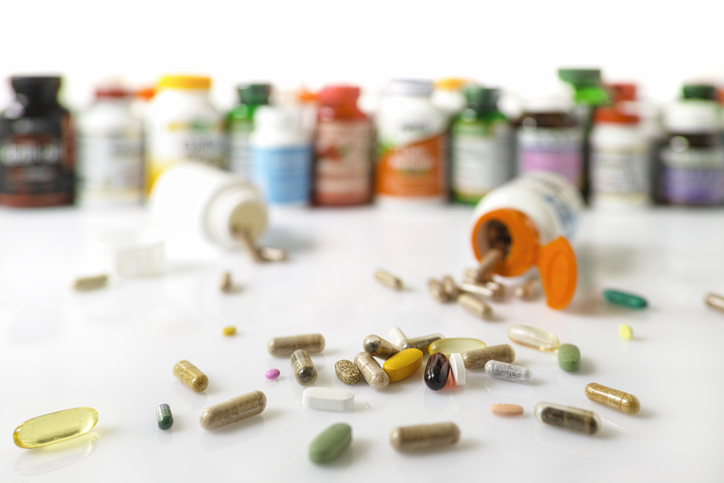Treatments
Safety and Supplements

Dietary supplements, such as vitamins, minerals, herbs and enzymes are often labeled “natural”; however, just because something is marketed as “natural” does not necessarily mean it is safe. For example, many vitamins and minerals that naturally occur in healthy foods are available in supplement form, but taking them in supplement form can pose health risks. Dosage amounts, interactions with medication(s), side effects and lack of the U.S. Food and Drug Administration (FDA) regulation should be considered before an individual adds a supplement to their diet.
Risks of taking supplements
The active ingredients in supplements can have strong effects on the body. Getting too much of certain vitamins and minerals can cause negative side effects. For example, getting too much iron can cause nausea, vomiting and even liver damage. An excess amount of vitamin A can cause headaches and reduce bone strength.
Even when the dose is not excessive, certain supplements can interact with both over-the-counter and prescription medications. For example, vitamin K can reduce the effectiveness of certain blood thinners which prevent blood from clotting. St. John’s wort can accelerate the breakdown of many medications reducing their effectiveness in the body. Some supplements can also affect an individual’s risk of bleeding during and after surgery or affect an individual’s response to anesthesia.
Regulation of supplements
When a supplement manufacturer includes a new ingredient in a supplement, they must notify the FDA, who reviews the ingredient for safety. Supplement manufacturers must also follow the FDA-established good manufacturing practices.
However, unlike medications, the FDA does not approve supplements for safety or effectiveness. Since supplements are not drugs and are not tested in the same way as prescription or over-the-counter medications, supplements are not intended to treat, diagnose or cure diseases. Manufacturers cannot make these types of claims, but they can claim that a supplement supports a body system, such as the immune system or the respiratory system. If a supplement label or marketing material makes such a claim, it must be followed by a statement such as, “This statement has not been evaluated by the Food and Drug Administration. This product is not intended to diagnose, treat, cure, or prevent any disease.” If supplements are found to be unsafe or if a manufacturer makes false or misleading claims, the federal government can take action against the company.
Many supplements may have “seals of approval” or lab reports from independent organizations. These reports or seals can confirm that the supplement was properly manufactured, contains the ingredients on the label and does not contain contaminants. However, this does not guarantee that the product is effective or safe.
How to stay safe
Individuals should always speak with a physician or pharmacist before taking any supplement(s). Also, individuals should disclose all supplements, over-the-counter medications and prescription medications with every health care provider, including dentists.


















